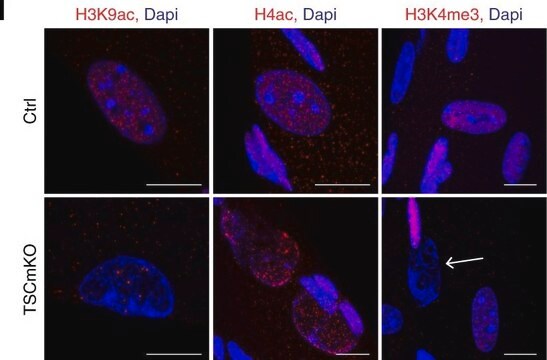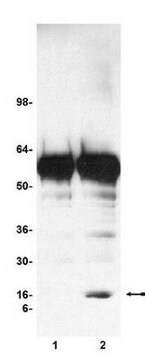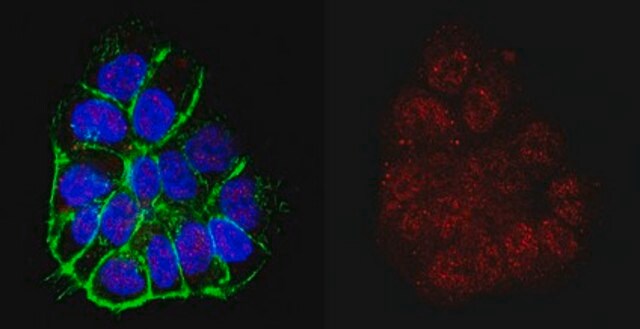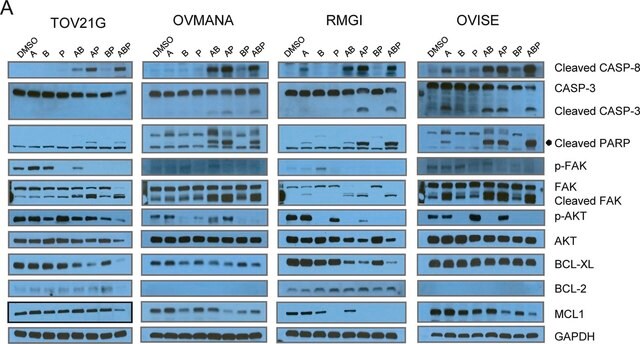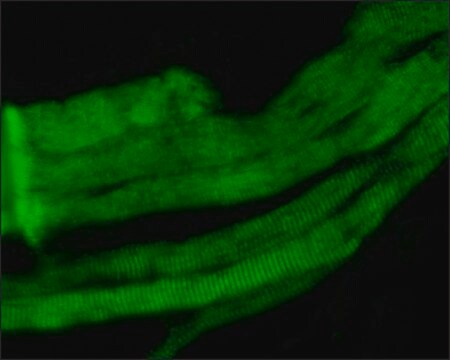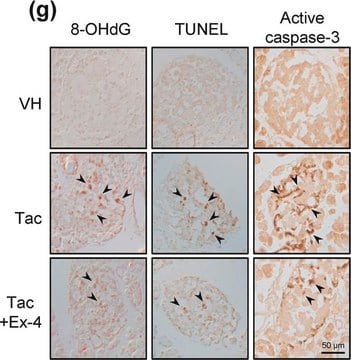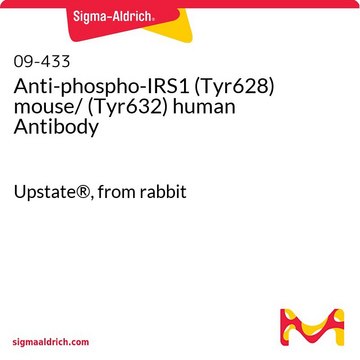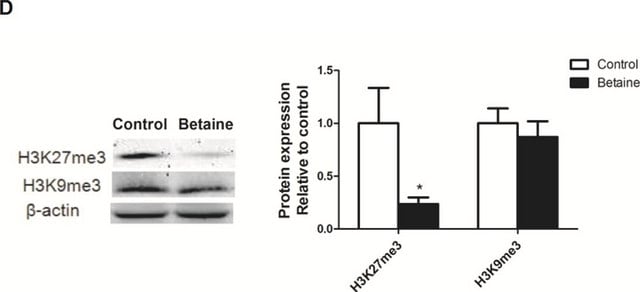17-229
Acetyl-Histone H4 Immunoprecipitation (ChIP) Assay Kit
Acetyl-Histone H4 Immunoprecipitation (ChIP) Assay Kit used to immunoprecipitate transcriptionally active chromatin from mammalian cells using anti-Acetyl-Histone H4, ChIP grade rabbit antiserum.
Faça loginpara ver os preços organizacionais e de contrato
About This Item
Código UNSPSC:
12161503
eCl@ss:
32161000
NACRES:
NA.52
Produtos recomendados
Nível de qualidade
fabricante/nome comercial
Upstate®
técnica(s)
immunoprecipitation (IP): suitable
nº de adesão NCBI
nº de adesão UniProt
Condições de expedição
dry ice
Descrição geral
For use to immunoprecipitate transcriptionally active chromatin from mammalian cells using anti-Acetyl-Histone H4, ChIP grade rabbit antiserum. Detection of the gene or promoter of interest in immunoprecipitated chromatin must be empirically determined by the researcher using quantitative PCR or Southern slot-blot analysis, using promotor specific primers or probe.
Aplicação
Acetyl-Histone H4 Immunoprecipitation (ChIP) Assay Kit used to immunoprecipitate transcriptionally active chromatin from mammalian cells using anti-Acetyl-Histone H4, ChIP grade rabbit antiserum.
Embalagem
Kit capacity: 22 assays
Componentes
Anti-acetyl-Histone H4 (Cat.# 06-866)
Protein A agarose/Salmon Sperm DNA (Cat.# 16-157)
All necessary buffers
Protein A agarose/Salmon Sperm DNA (Cat.# 16-157)
All necessary buffers
Informações legais
UPSTATE is a registered trademark of Merck KGaA, Darmstadt, Germany
Exoneração de responsabilidade
Unless otherwise stated in our catalog or other company documentation accompanying the product(s), our products are intended for research use only and are not to be used for any other purpose, which includes but is not limited to, unauthorized commercial uses, in vitro diagnostic uses, ex vivo or in vivo therapeutic uses or any type of consumption or application to humans or animals.
Palavra indicadora
Warning
Frases de perigo
Declarações de precaução
Classificações de perigo
Aquatic Chronic 3 - Eye Irrit. 2
Código de classe de armazenamento
10 - Combustible liquids
Certificados de análise (COA)
Busque Certificados de análise (COA) digitando o Número do Lote do produto. Os números de lote e remessa podem ser encontrados no rótulo de um produto após a palavra “Lot” ou “Batch”.
Já possui este produto?
Encontre a documentação dos produtos que você adquiriu recentemente na biblioteca de documentos.
Guocheng He et al.
Molecular and cellular biology, 22(9), 2965-2973 (2002-04-10)
Repression of human immunodeficiency virus type 1 (HIV-1) transcription may contribute to the establishment or maintenance of proviral quiescence in infected CD4(+) cells. The host factors YY1 and LSF cooperatively recruit histone deacetylase 1 (HDAC1) to the HIV-1 long terminal
Hui Liu et al.
Blood, 104(8), 2505-2513 (2004-07-01)
Cyclin D1 expression is deregulated by chromosome translocation in mantle cell lymphoma and a subset of multiple myeloma. The molecular mechanisms involved in long-distance gene deregulation remain obscure, although changes in acetylated histones and methylated CpG dinucleotides may be important.
Shaojing Chang et al.
Journal of immunology (Baltimore, Md. : 1950), 181(12), 8372-8381 (2008-12-04)
Forming and removing epigenetic histone marks at gene loci are central processes in differentiation. Here, we explored mechanisms establishing long-range H4 acetylation marks at the Ifng locus during Th1 lineage commitment. In Th0 cells, histone deacetylase (HDAC)-Sin3A complexes recruited to
Lata Balakrishnan et al.
Journal of molecular biology, 365(1), 18-30 (2006-10-24)
SV40 chromosomes undergoing transcription operationally defined by the presence of RNA polymerase II (RNAPII) were immune-selected with antibody to RNAPII and subjected to secondary chromatin immunoprecipitation with antibodies to hyperacetylated or unacetylated H4 or H3. Immune selection fragmentation and immunoprecipitation
Melker Göransson et al.
International journal of cancer, 115(4), 556-560 (2005-02-03)
The myxoid/round cell liposarcoma oncogene FUS-DDIT3 is the result of a translocation derived gene fusion between the splicing factor FUS and DDIT3. In order to investigate the downstream targets of DDIT3, and the transforming effects of the FUS-DDIT3 fusion protein
Nossa equipe de cientistas tem experiência em todas as áreas de pesquisa, incluindo Life Sciences, ciência de materiais, síntese química, cromatografia, química analítica e muitas outras.
Entre em contato com a assistência técnica